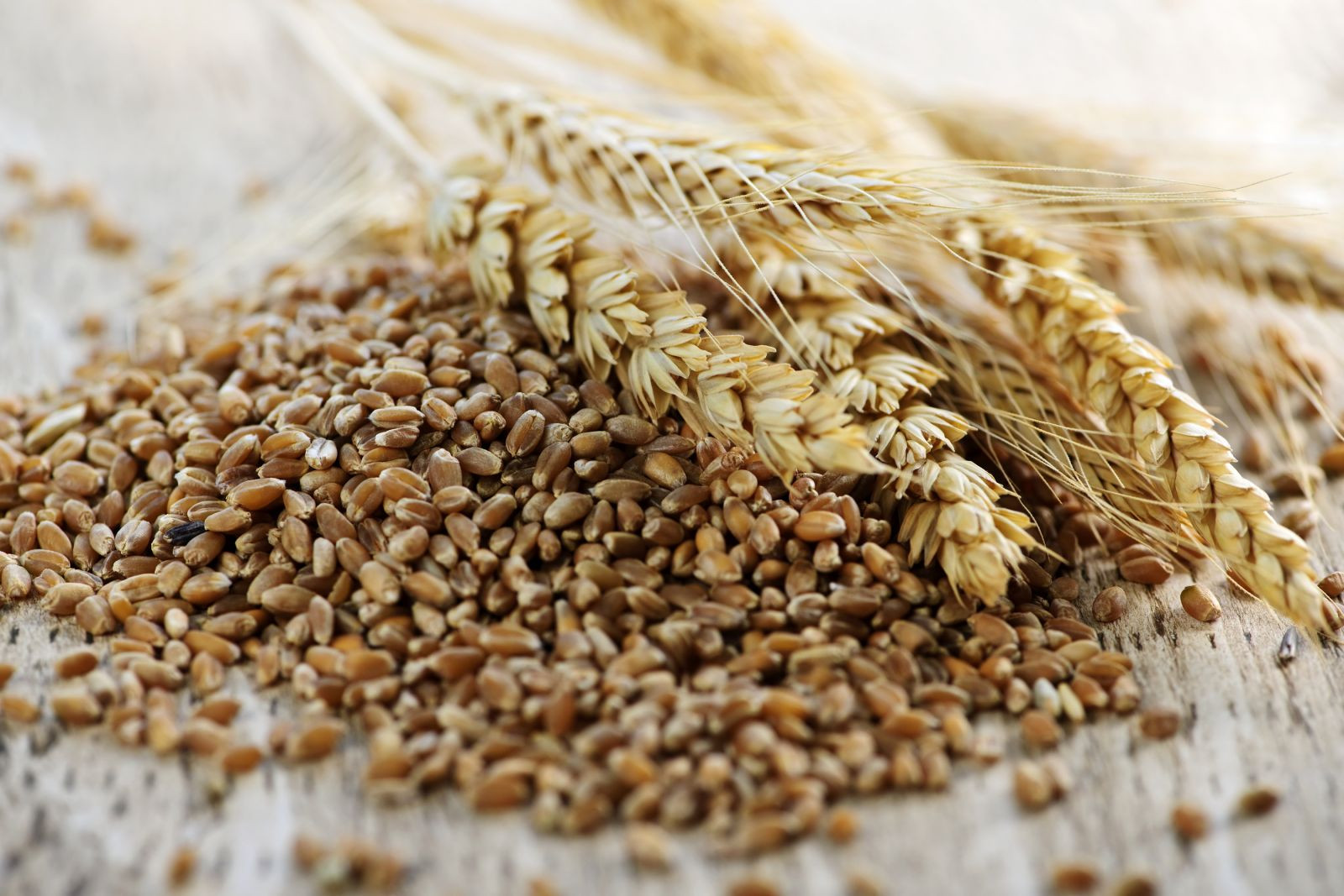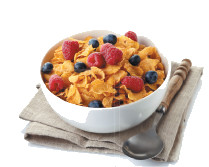
How �� and why �� to fit more fiber and fermented food into your meals

UTI in older women: Why postmenopausal women are susceptible to urinary tract infection, and what to do about it

Can a routine vaccine prevent dementia?

Some adults may need a measles booster shot. Who should get one and why?

Less butter, more plant oils, longer life?

Healthier planet, healthier people

Counting steps is good �� is combining steps and heart rate better?

Appendix pain: Could it be appendicitis?

Can saw palmetto treat an enlarged prostate?

How does Ozempic work? Understanding GLP-1s for diabetes, weight loss, and beyond
Nutrition Archive
Articles
Reaping gains from grains
Eating whole grains may benefit your heart and lengthen your life.��
Grain foods made from the hard, dry seeds of plants have been a nutritional basic for thousands of years. When you eat a whole grain, you're getting more than just the fiber from the seed's outer layer. You also get all the vitamins, minerals, good fats, enzymes, antioxidants, and phytonutrients that are stripped away when grains are processed.
An avocado a day may keep cholesterol at bay
Adding an avocado a day to a healthy diet may lower harmful LDL cholesterol levels, according to a study in the Journal of the American Heart Association. Forty-five overweight or obese volunteers followed three different cholesterol-lowering diets, each for five weeks. One diet had 24% of calories from fat; the other two were 34% fat, one of which included an avocado per day. While participants were on the avocado diet, their LDL levels dropped an average of 13.5 points—nearly twice as much as when they were on the other two diets.
Hass avocados (the type used in the study) have bumpy, greenish-black skin. The creamy flesh is rich in monounsaturated fats, which help lower LDL cholesterol when swapped for saturated fat. But other compounds in avocados, such as fiber and plant sterols, may also contribute to their healthful benefits, say the authors. Avocados can be sliced into salads, spread on sandwiches, or mashed to make guacamole. Just be sure to go easy on the high-calorie, salty corn chips often served with the latter.
Feeling young at heart may help you live longer
People who feel young at heart are more likely to pursue physical activity, even it's an activity that's challenging. |
A youthful attitude may lead to better eating and exercising habits.
A stable weight may reduce fracture risk
A study published in the Jan. 27, 2015, issue of The BMJ challenges the longstanding notion that weight gain protects against postmenopausal fractures. Data from the Women's Health Initiative (WHI) indicate that weight gain, as well as weight loss, is associated with increased risk of fractures in postmenopausal women. The analysis also suggested that which bones were most likely to break depended on whether women have gained or lost weight.
WHI researchers analyzed data on over 120,000 healthy postmenopausal women ages 50 to 79 at the start of the study. Each year, participants were weighed and asked to report fractures of their arms, legs, hip, pelvis, and spine.
Boost the power of your breakfast cereal
Image: Thinkstock One serving each��of whole-grain��cereal, low-fat milk,��and fruit meet the��requirements for a��healthy breakfast. |
Learn which ingredients will give your day a healthy start.
Grocery store shelves are filled with dozens of breakfast cereals all promising important health benefits. But how do you know if you're getting what you need? "Labels and marketing promises on boxes can be confusing. It's best to go cereal shopping with a plan," says Kathy McManus, director of the Department of Nutrition at Harvard-affiliated Brigham and Women's Hospital. She advises that you complement cereal with milk for protein and calcium and with fresh fruit for natural sweetness and some fiber. Don't worry if the cereal is organic or not. But do read ingredient lists carefully, and aim for the following markers of good nutrition.
A wake-up call on coffee
This popular beverage may have benefits beyond a morning buzz. But be careful with your add-ins.
Coffee drinkers around the world savor the bitter brew on a daily basis. But are there any grounds for concern regarding coffee's effects on the heart? On the contrary: the case for drinking coffee seems to be growing. Straight coffee—minus the cream and sugar—is a nearly calorie-free beverage brimming with antioxidants. It might ease artery-damaging inflammation and may deliver a substance that helps the body regulate blood sugar.
"The evidence for the benefits of coffee consumption is even more convincing than it was five years ago, especially when it comes to preventing type 2 diabetes and reducing risk of heart disease and stroke," says Dr. Frank Hu, professor of nutrition and epidemiology at the Harvard School of Public Health.
Having a big belly puts your heart in danger
Cutting back on carbohydrates can help shrink a bulging midriff.
Pants getting a little snug? It's not just you: Americans' waistlines have ballooned over the past decade or so, to an average of just under 40 inches for men and almost 38 inches for women, according to a large federal study.
A new way to "beet" high blood pressure?
�� �� �� �� Images: Thinkstock |
Beets rarely rank high on anyone's list of most-loved vegetables. But here's a reason to give these ruby-red roots another try: beet juice may help lower blood pressure, according to a study in the February 2015 Hypertension.
Beets contain naturally high levels of nitrates, which your digestive system converts into nitric oxide. This compound relaxes and widens blood vessels, which, in turn, lowers blood pressure.
Chemical in food can liners may boost blood pressure
�� �� �� Images: Thinkstock |
Some plastic bottles, food containers, and linings of cans contain bisphenol A (BPA), a chemical that's been under close scrutiny because of its potential effects on human health. Most Americans have traces of BPA in their urine, and some research hints of a possible link between BPA exposure and cardiovascular disease. Now, a study in the September 2014 Hypertension finds that BPA exposure from cans may raise blood pressure.
Sixty older adults drank two servings of soymilk provided one of three ways: in two glass bottles (providing the least BPA), two cans (most BPA), or one glass bottle and one can. Two hours after participants drank from the cans, their urinary BPA levels were much higher than after they drank from two glass bottles. And their systolic blood pressure (the first number in a blood pressure reading) was roughly 4.5 mm Hg higher after two cans versus two glass bottles.

How �� and why �� to fit more fiber and fermented food into your meals

UTI in older women: Why postmenopausal women are susceptible to urinary tract infection, and what to do about it

Can a routine vaccine prevent dementia?

Some adults may need a measles booster shot. Who should get one and why?

Less butter, more plant oils, longer life?

Healthier planet, healthier people

Counting steps is good �� is combining steps and heart rate better?

Appendix pain: Could it be appendicitis?

Can saw palmetto treat an enlarged prostate?

How does Ozempic work? Understanding GLP-1s for diabetes, weight loss, and beyond
Free Healthbeat Signup
Get the latest in health news delivered to your inbox!
Sign Up











